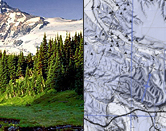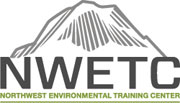
More Information
Directions
Accommodations
|
| Course Title: |
ArcGIS PRO: An Introduction to Environmental Applications |
| Course ID: |
GIS-403 |
| Status: |
CLOSED |
| Date(s): |
March 12, 2019: 8:30am - 4:30pm
March 13, 2019: 8:30am - 4:30pm
March 14, 2019: 8:30am - 4:30pm
|
| Location: |
Portland State University
TBD
Portland, OR |
| Instructor: |
Brian Fulfrost
|
| Tuition: |
$1,095 /
$1,045* |
|
$995 /
$945*
(Before February 10, 2019)
|
Class is Closed
|
Description: This 3-day hands-on class introduces participants to the environmental applications of ESRI's ArcGIS 10 software. The course will build upon a discussion of general concepts and vocabulary to form a comprehensive overview of ArcGIS PRO’s functions and uses in the environmental field. Each participant will have their own computer workstation to create, edit, display and analyze real world environmental data during numerous hands-on exercises. On the third day, participants will have an opportunity to expand their skills by applying their knowledge to more complex and in-depth projects. | "Great overview of tools and tasks...Exercises were great at walking through and showing how each tool can be applied to real world situations."-Adam J, March 2014 "This course took me through a ton of useful information in just a short period of time, and the price was right!" Adam C, March 2014 "It is very applicable to my job duties, I will immediately be able to use these tools." -E. Moore, March 2013
"…very relevant to natural resource work. " -S. Miller, March 2013 |
After completing this course, participants will be able to:
- Apply a conceptual overview of GIS and spatial analysis to environmental data
- Understand and utilize the fundamental capabilities of ArcGIS
- Conduct overlay analysis
- Create intersects, buffers, unions and clips using the Geoprocessing Wizard
- Measure spatial relationships between layers of geographic data
- Perform complex relational database queries
- Generate presentation-quality maps
Prerequisites: Basic understanding of computer operations.
*reduced tuition is available to employees of Native American tribes, government agencies, and nonprofits; students; and NAEP, NEBC, NWAEP members
Please wait to receive a course confirmation email, roughly one month prior to the class, before making any travel arrangements.
Intended Audience: This hands-on course is intended for environmental and graphics professionals involved in the collection, interpretation, and presentation of spatially related data. Attendees will learn the uses and capabilities of ArcGIS 10 by working first-hand on sample scenarios. Previous GIS experience is not required.
Continuing Education Units: 2.00 CEUs
Course Topics
Overview of ArcCatalog and ArcMap
Connecting to Data
Adding Layers
Working with Geographic Features
Feature Attributes within a Data Frame
Querying and Selecting Geographic Features
Editing Features
Working With CAD Drawings
Creating Summary Charts | Manipulating Tables
Creating Tables
Mapping Buffers
Symbolization
Adding Database Features
Layouts and Printing Maps
Basic On-Screen Digitizing/Georeferencing
Intro to Spatial Analyst Extension
Intro to 3D Analyst Extension |
About the Instructor
 Brian is currently founding principal at Oregon Freshwater Simulations and also teaches GIS for sustainable planning at Washington State University in Vancouver, WA and at San Francisco State University. Brian has been a strong advocate for the use of GIS, remote sensing and related technologies to assist decision makers, land and resource managers and urban planners to make more informed decisions. For nearly 20 years, he has been using and teaching the use of geospatial technologies in natural resource management and conservation as well as in sustainable planning and smart growth. As founding principal at Oregon Freshwater Simulations, he oversees the use of GIS, web/mobile mapping and remote sensing applications in sustainable planning (including network based walkability studies, public health, and food system studies ) and natural resource conservation (including vegetation mapping, habitat suitability, ecosystem services and decision support systems).
What to Bring
Pen or pencil and paper to take notes. Drinks and light snacks will be provided. You will be on our own for lunch.
Billing Information
In order to guarantee a space in a course, the tuition must be paid in full TWO WEEKS before the first day of the course by either check or credit card. State and government agencies paying with a purchase order are allowed payment under the two-week time frame if a copy of the purchase order is received by NWETC.
If You Need to Cancel
Cancellations*-
With 31 or more days notice, we will offer a 100% refund or credit towards a future course. The credit is good for one year and may be applied to any course.
- With 30-8 days notice, we will offer a course credit towards a future course. The credit is good for one year and may be applied to any course.
- With fewer than 8 days notice, there is no course credit available
*Please note that attendee replacement is welcome at any time
Disability Accommodations
Disability Accommodations:To request disability accommodations, please contact us at info@nwetc.org or 425-270-3274 at least 30 days prior to the event.
|










